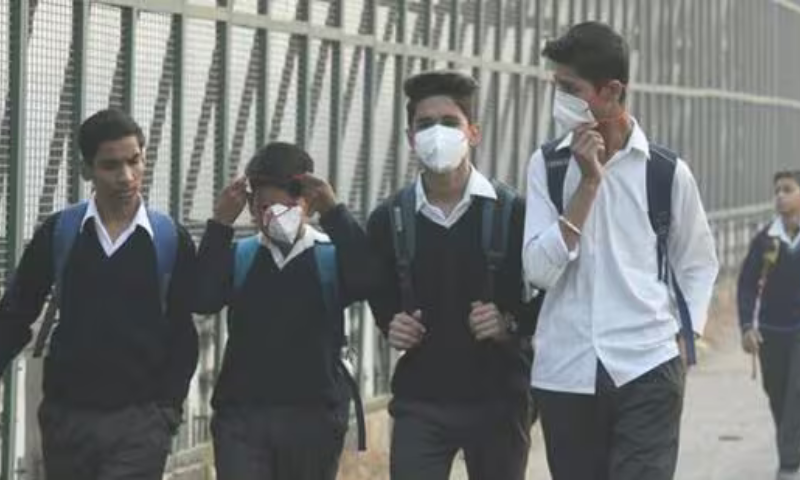PARIS: Around 2,000 children die each day due to health complications associated with air pollution, positioning it as the second most major risk factor for early death globally, according to a recent report released by the US-based Health Effects Institute.
In 2021 alone, air pollution was a contributing factor in 8.1 million deaths worldwide, accounting for approximately 12 percent of all fatalities, the report found. This places air pollution ahead of tobacco use and poor diet, trailing only high blood pressure as the leading cause of premature mortality.
The report, produced in collaboration with the United Nations Children’s Fund (UNICEF), underscores the severe vulnerability of young children to air pollution. It revealed that over 700,000 children under the age of five succumbed to air pollution-related health issues in 2021. Of these, more than 500,000 deaths were attributed to the use of dirty fuels like coal, wood, and dung for indoor cooking, primarily in Africa and Asia.
Pallavi Pant, the Health Effects Institute’s head of global health, emphasized the solvable nature of these issues. “These are problems we know that we can solve,” she told AFP.
The report’s findings are alarming: nearly every individual globally breathes unhealthy levels of air pollution daily. Over 90 percent of these deaths are linked to tiny airborne pollutants known as PM2.5, which measure 2.5 micrometers or less. Exposure to PM2.5 increases the risk of numerous health problems, including lung cancer, heart disease, stroke, and diabetes.
Despite these dire statistics, the report may still underestimate the full impact of air pollution, according to Pant. It does not account for potential effects on brain health, neurodegenerative diseases, or the additional harm from using solid fuels for heating.
Ozone pollution, exacerbated by climate change, was also a significant concern, contributing to nearly 500,000 deaths in 2021. Extreme weather events such as wildfires, dust storms, and heatwaves are causing brief but intense episodes of heightened air pollution, which drive up ozone levels, Pant explained.
Addressing air pollution and climate change can benefit from “very similar solutions,” particularly reducing greenhouse gas emissions. Additionally, transitioning away from the use of solid fuels for indoor cooking could make a substantial difference. China has made notable strides in this area, showcasing that progress is possible.
Globally, over two billion people still cook on basic stoves or open fires indoors, exposing themselves to harmful smoke. However, the rate of young children dying from air pollution-related issues has decreased by more than 50 percent since 2000, partly due to better access to cleaner cooking methods.
In May, the International Energy Agency announced that $2.2 billion had been pledged by governments and companies to enhance access to safer cooking technologies.
The data for this report was sourced from the Global Burden of Disease study conducted by the US-based Institute for Health Metrics and Evaluation, covering over 200 countries and territories.
“Every day almost 2,000 children under five years die because of health impacts linked to air pollution,” said UNICEF’s Kitty van der Heijden. “Our inaction is having profound effects on the next generation.”























